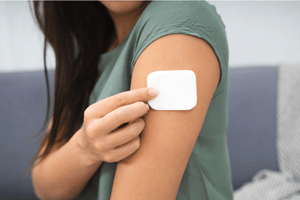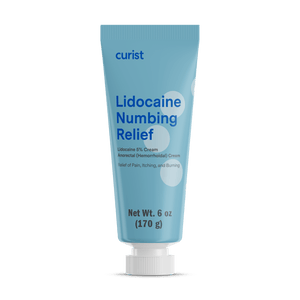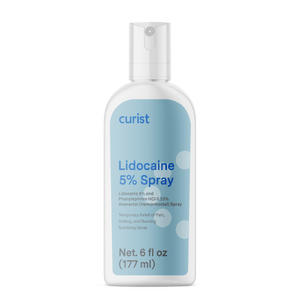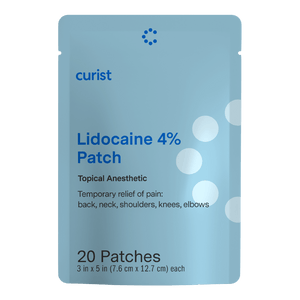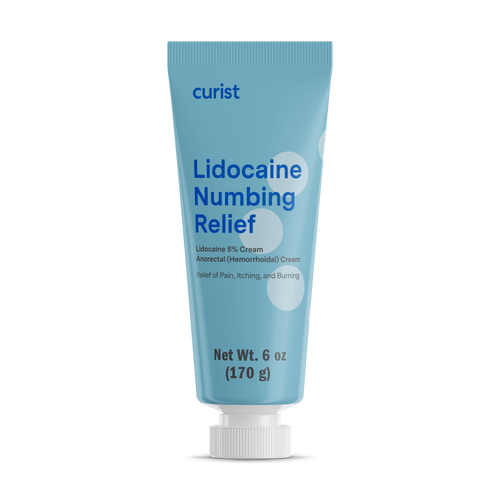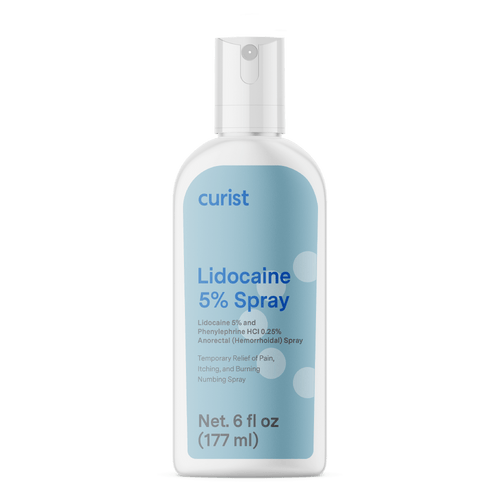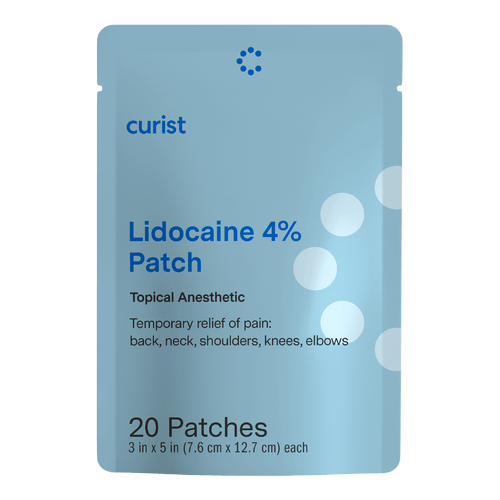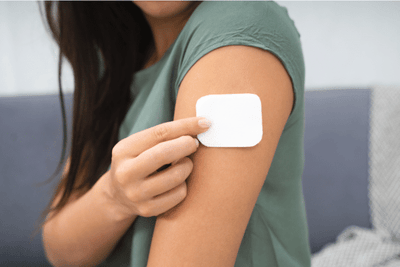By Riya Parikh, Temple University School of Pharmacy
Curist delivers over-the-counter medicines to your door at a fraction of the price of traditional brands. We hope everyone stays safe and healthy during this time.
Is Lidocaine the Same Thing as Hydrocortisone?
No, lidocaine and hydrocortisone are not the same. The main difference between lidocaine and hydrocortisone is how they work. Lidocaine belongs to the class of medications known as anesthetics. Anesthetics work by numbing the affected area, resulting in temporary relief from the pain. Hydrocortisone, on the other hand, belongs to the class of medications known as topical steroids and works by reducing inflammation and swelling, which could indirectly reduce pain.
How do Lidocaine Creams and Hydrocortisone Creams Work?
Lidocaine is a topical anesthetic that temporarily relieves pain by working on the nerves and causes a numbing sensation in the affected area. It does not treat the underlying cause of the pain. Hydrocortisone is a steroid that works by reducing swelling in the affected area, which could result in some relief from pain. Additionally, hydrocortisone reduces redness and itching.
How are Lidocaine Cream and Hydrocortisone Cream Similar?
Lidocaine and hydrocortisone are similar in the sense that they both provide relief from pain and itching from insect bites, minor burns, poison ivy/oak, scratches, and minor cuts, depending on the strength. Lidocaine and hydrocortisone are also both available as over-the-counter creams. Please note that for over-the-counter use, lidocaine at the 4% strength can be used topically on the body for the issues mentioned but lidocaine at the 5% strength can only be used for hemorrhoidal or anorectal use.
What are the Key Differences Between Lidocaine Cream vs Hydrocortisone Cream?
Lidocaine cream numbs the area affected due to minor injuries so that you feel less discomfort. These types of topical anesthetics are different from the anesthetics used to make patients unconscious during surgery. Please note that for over-the-counter use, lidocaine at the 4% strength can be used topically on the body for the issues mentioned but lidocaine at the 5% strength can only be used for hemorrhoidal or anorectal use.
Hydrocortisone reduces the discomfort by targeting inflammation, which in turn, decreases redness and itching.
Is Lidocaine Cream Stronger than Hydrocortisone Cream? Is Hydrocortisone Cream Stronger than Lidocaine Cream?
Since lidocaine and hydrocortisone provide relief from different symptoms, their individual strengths cannot be compared to each other. So we cannot really say that lidocaine cream is stronger than hydrocortisone cream, or that hydrocortisone cream is stronger than lidocaine cream. While lidocaine provides relief from discomfort through the effect of numbing the affected area, hydrocortisone provides relief by reducing redness and itchiness through decreasing inflammation. However, it is worth noting that lidocaine provides more temporary relief due to its numbing effect, whereas hydrocortisone targets the root of the discomfort in the form of inflammation, resulting in gradual relief for a longer period of time.
Which is the Best for Treating Itching and Skin Discomfort: Lidocaine Cream or Hydrocortisone Cream?
Hydrocortisone provides relief from skin discomfort due to itching and inflammation. As a topical steroid, it penetrates the skin to reduce the release and activity of chemical mediators of itchiness and inflammation. On the other hand, lidocaine will block the sensory signals, resulting in relief from itchiness without addressing the underlying cause. Please note that for over-the-counter use, lidocaine at the 4% strength can be used topically on the body for itching but lidocaine at the 5% strength can only be used for itching related to hemorrhoidal or anorectal use, and should not be used on the body.
What is Better for Treating Hemorrhoids: Lidocaine Cream or Hydrocortisone Cream?
Both lidocaine and hydrocortisone may provide relief from hemorrhoids through varying effects on the target area. Lidocaine provides rapid relief from the pain, itching, and burning by temporarily numbing the affected area. Hydrocortisone provides relief from the redness, irritation, and itching associated with hemorrhoids by blocking the release of inflammatory chemicals. If your symptoms do not improve within 7 days of using over-the-counter treatments, you should contact your healthcare provider.
If you are interested in learning more about lidocaine for hemorrhoids, checkout the Curist Lidocaine 5% Numbing Relief.
Can I Switch from Hydrocortisone Cream to Lidocaine Cream?
Depending on the strength, it is safe to use lidocaine cream for rapid relief of pain, itching, and burning when hydrocortisone does not provide adequate relief from these symptoms. However, care should be taken to ensure that either of these therapies are not used for more than a week, and if symptoms still persist beyond a week, you should inform your healthcare provider. Please note that for over-the-counter use, lidocaine at the 4% strength can be used topically on the body for numbing but lidocaine at the 5% strength can only be used for numbing related to hemorrhoidal or anorectal use, and should not be used on the body.
Can I Mix Lidocaine Cream and Hydrocortisone Cream Together?
Lidocaine and hydrocortisone are available in a combination formulation that can be obtained only through a medical prescription. It is not advisable to mix lidocaine and hydrocortisone together yourself, since lidocaine and hydrocortisone have varying effects on symptoms, and may also cause exacerbation of those symptoms. If you do not feel relief within 7 days of using either hydrocortisone or lidocaine, a visit to your provider is strongly recommended to examine any further underlying causes.
Can I Use Both Lidocaine and Hydrocortisone Cream Together?
Yes, lidocaine and hydrocortisone can be used together when used under the supervision of a doctor. A medically prescribed combination of lidocaine and hydrocortisone may be used to obtain relief from the pain and itching associated with hemorrhoids, minor burns, insect stings, poison ivy, and minor cuts and scratches. However, care must be taken to ensure that the use of this combination does not exceed more than 7 days. In the event that symptoms do not improve, you should see your healthcare provider.


